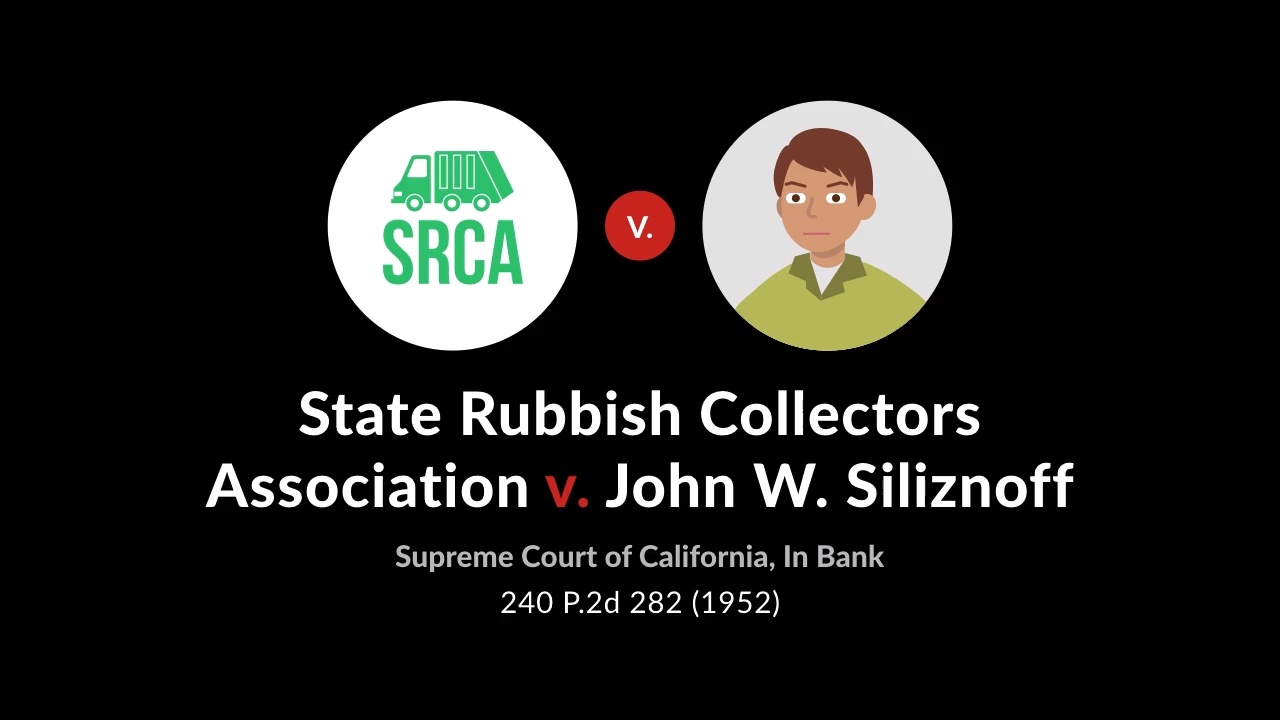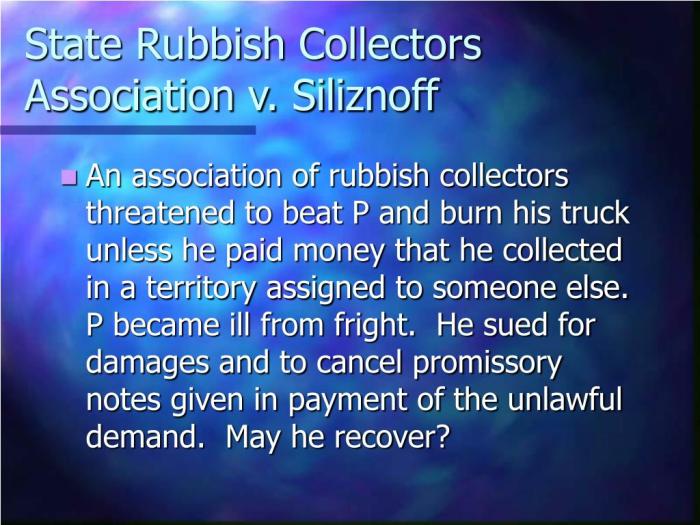State rubbish collectors v siliznoff – State Rubbish Collectors v. Siliznoff is a landmark lawsuit that has far-reaching implications for the waste management industry. This case delves into complex legal, economic, and environmental issues, offering valuable insights into the challenges and opportunities facing waste management practices today.
At the heart of the lawsuit lies a dispute between State Rubbish Collectors, a public waste management agency, and Siliznoff, a private waste disposal company. The allegations and counterclaims made by both parties have raised critical questions about the responsibilities and liabilities of waste management entities, the effectiveness of waste disposal practices, and the role of regulation in shaping industry standards.
1. Legal Framework

The legal basis for the lawsuit between State Rubbish Collectors and Siliznoff lies in the comprehensive legal framework governing waste management and disposal. These laws and regulations aim to protect public health, the environment, and ensure the efficient and responsible handling of waste.
Relevant Laws and Regulations
- Solid Waste Disposal Act (SWDA)
- Resource Conservation and Recovery Act (RCRA)
- Comprehensive Environmental Response, Compensation, and Liability Act (CERCLA)
- State and local waste management regulations
2. Allegations and Counterclaims

State Rubbish Collectors has alleged that Siliznoff has engaged in unfair and illegal business practices that have caused harm to their business and the environment. Siliznoff has denied these allegations and filed counterclaims, accusing State Rubbish Collectors of defamation and antitrust violations.
Allegations by State Rubbish Collectors
- Price fixing and anti-competitive behavior
- Unfair bidding practices
- Improper waste disposal
- Environmental violations
Counterclaims by Siliznoff, State rubbish collectors v siliznoff
- Defamation of character
- Antitrust violations
- Tortious interference with business relationships
3. Key Issues in Dispute

The central issues being contested in the lawsuit include the legality of Siliznoff’s business practices, the environmental impact of their waste disposal methods, and the potential antitrust violations.
Arguments by State Rubbish Collectors
- Siliznoff’s pricing practices are anti-competitive and have driven competitors out of the market.
- Siliznoff has engaged in unfair bidding practices by using inside information and manipulating the bidding process.
- Siliznoff has violated environmental regulations by improperly disposing of waste, causing harm to the environment.
Arguments by Siliznoff
- Their pricing practices are fair and competitive and do not violate antitrust laws.
- They have not engaged in any unfair bidding practices and have always acted in accordance with the law.
- They have complied with all environmental regulations and have not caused any harm to the environment.
FAQ Section: State Rubbish Collectors V Siliznoff
What are the key legal issues being contested in State Rubbish Collectors v. Siliznoff?
The lawsuit centers on allegations of breach of contract, unfair competition, and violations of environmental regulations.
What are the potential economic consequences of the lawsuit?
The outcome could impact the financial viability of both State Rubbish Collectors and Siliznoff, as well as the broader waste management industry.
How might the lawsuit affect environmental practices?
The case raises concerns about the effectiveness of waste disposal practices and the potential impact on recycling efforts.
